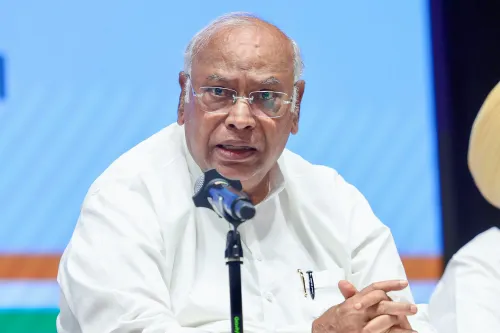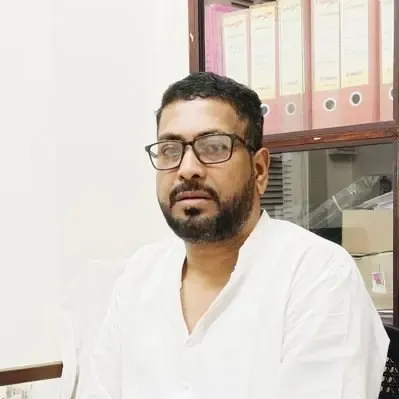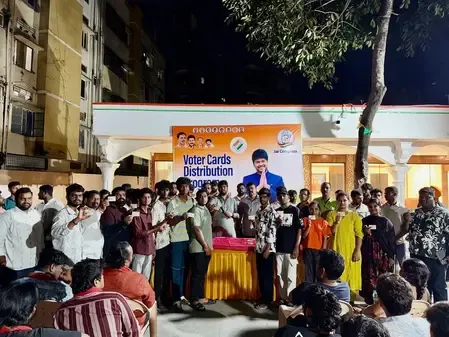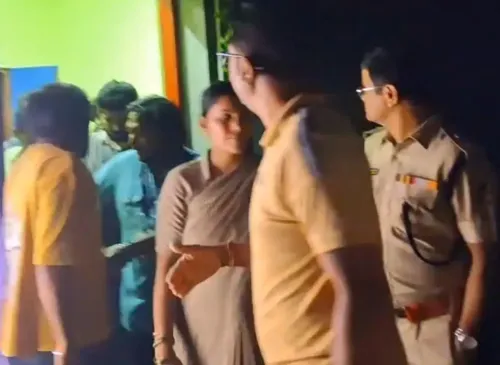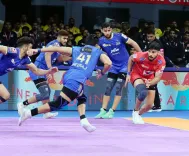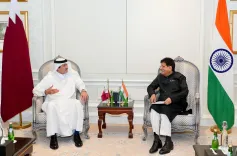How Did Kerala Students React to Their Interaction with Astronaut Shubhanshu Shukla?
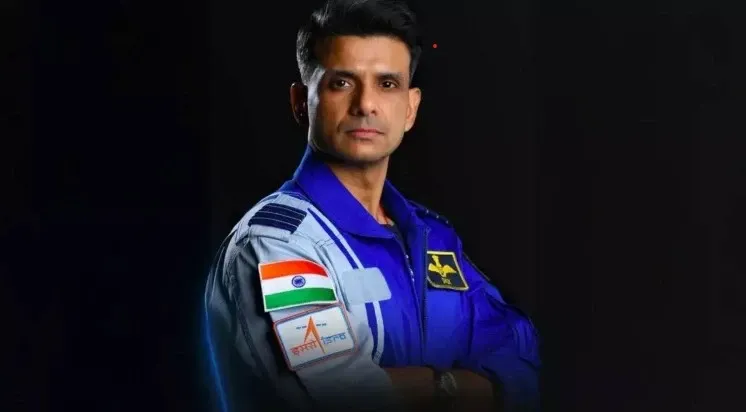
Synopsis
Key Takeaways
- Interaction with astronaut Shubhanshu Shukla inspired students.
- Insights into life aboard the ISS were shared.
- Focus on nutrition and health in space was highlighted.
- Significant contributions from India in global space research.
- Opportunity for students to engage with scientific exploration.
Thiruvananthapuram, July 3 (NationPress) Approximately 200 students and their parents in Kerala experienced a thrilling moment on Thursday as they engaged with India's astronaut Shubhanshu Shukla through video conferencing from the International Space Station.
The media learned about this remarkable event only after it took place at the Vikram Sarabhai Space Centre (VSSC) of the Indian Space Research Organisation in the state capital.
The interaction lasted about 10 minutes, leaving the students exhilarated as they listened to Shukla respond to their inquiries regarding life aboard the International Space Station.
Students were chosen based on their contributions to science clubs and their achievements in the Upper Secondary Scholarship examinations.
Fifteen-year-old B. Sanghavi, who traveled from Kozhikode with her parents, was still processing the incredible experience of having all her questions answered by Shukla.
"He demonstrated how he can float and addressed all our queries," said Sanghavi.
Interestingly, only the students were allowed to the VSSC campus, while the parents awaited their return in the city, reuniting with their children after the event.
"My son, who is in Class X, has always admired our former President A.P.J Abdul Kalam, who spent a significant part of his career at VSSC. He was inspired by Kalam's humility and gradually developed an interest in space, which likely contributed to his good fortune in attending this event," shared an enthusiastic parent.
The students were curious about the advantages of the space program and what aspects of the space journey Shukla found most enjoyable.
During the interaction, Shukla described the launch experience of the Axiom Mission 4 as "incredible" and "dynamic".
"It’s truly fun because there’s no floor or ceiling in space. If you were to visit the ISS, you might see someone sleeping on the walls or even on the ceiling," he explained to the students.
When asked about astronaut meals, the Lucknow-born astronaut shared that most food is pre-packaged, with careful measures taken to ensure adequate nutrition.
"Various food items are presented, and astronauts can taste them before packing their preferred options," Shukla elaborated.
In response to a question about illness in space, Shukla noted, "It’s easy to float and secure yourself to the ceiling. The real challenge is to remain in the same spot where you slept and ensure your sleeping bag is tied down to prevent floating away."
A student inquired about the effects of space on mental health, to which Shukla replied that modern technology allows astronauts to stay connected with family and friends, which is very helpful.
Shukla discussed how the weightlessness of space impacts digestion, noting, "My body has adapted to microgravity, but upon returning to Earth, I will need to readjust to gravity, which poses its own challenges."
Additionally, Shukla is engaged in developing a brain-computer interface in the orbital lab, as reported by NASA on Thursday.
He is on a 14-day scientific mission aboard the ISS as part of the Axiom-4 mission, alongside three other astronauts from the US, Poland, and Hungary.
The crew is involved in around 60 scientific studies and commercial activities in microgravity, representing 31 countries, including the US, India, Poland, Hungary, Saudi Arabia, Brazil, Nigeria, UAE, and various European nations.
India, through ISRO, has contributed seven meticulously selected studies to the mission.

